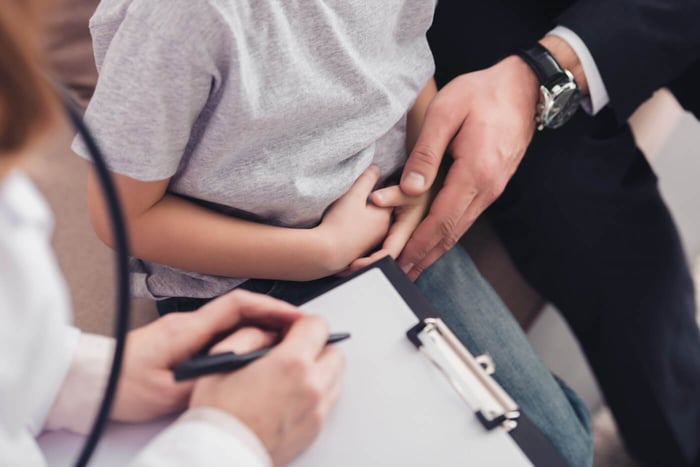Two nurses donate their kidney, part of liver to help another
Valerie Salnave, 37, is an oncology nurse at Baptist Health Miami Cancer institute. She donated part of a liver to a stranger.
Courtesy of Valerie Salnave
In a year where medical heroes have been celebrated for their sacrifices, two local nurses have distinguished themselves for truly selfless acts: They each donated an organ to a stranger.
Here are their stories:
An oncology nurse at Baptist Health’s Miami Cancer Institute, Valerie Salnave, 37, said she forms deep bonds with her patients. When she learned in early 2020 that a cancer patient her age needed a liver transplant, Salnave decided to get tested to see if she was a match.
“During that process, it turned out I wasn’t the best match for her. But there was another person who I was the perfect match for, and their family was a match for my patient. So we decided to do a swap,” Salnave said.
A few weeks before the October 2020 surgery, Salnave’s patient backed out. But Salnave decided to continue with her organ donation, even though she didn’t know the recipient’s identity.
“I chose to continue on because I had already made the commitment,” Salnave said. “That’s not something you just take away from somebody, whether you know them or not.”
She became what is known as an altruistic donor, which means the donor doesn’t know anything about the recipient, and the recipient decides if they want to meet the donor or have contact, Salnave said.
With liver donations, only part of the liver is removed because the organ regenerates. In October 2020, Salnave had 60 percent of her liver removed at the University of Pittsburgh Medical Center. It was transferred to the recipient the same day and the surgery was a success.
Liver has already grown back
At Salnave’s three-month follow-up, she learned that her liver had already grown back. “Now I’m 37 with a freshly grown liver. It’s a win-win,” she said.
An Army reservist and single mother of two girls, Anais, 17, and McKenzie, 5, Salnave teaches nursing part-time at the American Medical Academy and recently finished a doctorate in nursing practice. She didn’t hesitate about being a living organ donor.

“One thing I’ve learned about being an oncology nurse is that it [cancer] can affect any and everybody,” Salnave said. “My patient is my age and I can relate to her. If I was ever in her shoes, I could only hope somebody would do the same for me.”
After the surgery, Salnave took off six weeks of work to recover. But her vacation time had already been used up, by two weeks of service as an Army reservist and a bout with COVID-19.
Salnave’s good deeds didn’t go unnoticed. While she had a stranger’s back, her co-workers had hers. They chipped in their own vacation time.
“I felt compelled to donate eight hours of vacation time because Valerie is selfless, compassionate and always going above and beyond,” said Hollie Gow, director of Professional Nursing Practice Standards at Baptist Health’s Miami Cancer Institute. Employees collectively donated more than 120 hours of vacation to ensure that Salnave had the time off needed to recuperate.
Her daughters also understood their mom’s sacrifice. After the surgery, Salnave said she was sleeping a lot.
“Fatigue is the biggest side effect during recovery as the liver regenerates,” she said. “So whenever I was sleeping my 5-year-old would tell people ‘Don’t wake up my mommy. She’s growing a liver. She needs to rest.’”
Salnave recently talked to her liver recipient, a Pennsylvania woman, for the first time over the phone. The two plan to meet in October for their one-year check-up.
But first she wants to raise awareness about living organ donation. “A lot of people don’t know you can do that, that you can donate your liver, your kidney, even your lung,” she said. “And if you get somebody off the National Registry, you’re helping multiple people because you’re saving that person’s life and then the other people on the list get to move up one more spot.”

Helping a co-worker’s husband
As a nurse in the neonatal intensive care unit at Broward General Medical Center, Brunna Martins, 36, spends her time caring for ill and premature newborns. But a rece
nt selfless act benefited the husband of a co-worker, when she gave him her kidney.
Martins and Helene Molino, a unit secretary in the pediatric intensive care unit at Broward General, had never met before the organ donation.
In late 2019, Molino posted on Facebook that her husband Frank, then 58, and a longtime supervisor of Parks and Recreation for the city of Coral Springs, was desperate for a kidney.
Martins saw the social media post and was moved to act.
“I didn’t even know that living donors was a thing, but he reminded me a lot of my dad, and I would want somebody to do that for my dad,” she said. “I felt compelled. I can’t explain it. I felt like it was that thing I was supposed to do to make my time here worth it.”
Martins was tested for blood type and antibodies and learned that she was a good match for Molino.
More testing followed, including a kidney function test and a complete physical. Surgery was scheduled at AdventHealth Orlando, then delayed because of the pandemic. For months, Martins and the Molinos talked over the phone, but never met — not until just before the surgery in October 2020.
“We literally talked all the time,” Helene Molino said. “I had never met this girl and I felt the connection immediately.”

A single mother to a son, Odin, 5, Martins said she initially wanted to keep the organ donation quiet. “I didn’t want to feel guilty if I wasn’t able to donate or something went wrong,” she said. Martins said she didn’t want to hear feedback that she was crazy or that she was an angel.
“I wasn’t doing it for that,” she said.
When Martins and the Molinos did meet shortly before the surgery, it was an emotional experience for everyone.
“Everybody was crying. It was just the most beautiful thing,” Martins said. She said the enormity of it really hit her seeing Frank in the hotel room hooked up to dialysis.
“My life is so busy and crazy I didn’t realize how his had been — just waiting, waiting and hooked up to a dialysis machine seven days a week,” she said. “I thought this is happening. This is the last day he’s ever going to be hooked up to a machine. To be able to give that to somebody feels great.”
After the surgery, Martins and the Molinos stayed together in a timeshare in Orlando. Helene took care of both of them.
Helene Molino said she still can’t believe it happened. “She definitely is an angel,” Molino said. “I get choked up every time I talk about it. It’s like I have another daughter.”
Back in South Florida, Helene looked in on Martins during her recovery. Martins’ coworkers started a meal train and helped get her son to school. “It was a whole community effort and it was just the most amazing thing,” Martins said.
Martins and the Molinos have become like family. They spent the holidays together as well as Frank’s 59th birthday, and they recently went to Disney on Ice. For their one-year anniversary, they plan to do a Disney trip.
Frank Molino said he is feeling great, and so thankful that Martins came into his life. “She’s just an incredible person…I mean, God dropped an angel in my lap,” he said. “Just knowing her makes me be a better person.”
Martins said she wants to educate others about living organ donation.
“If I had three kidneys,” she said. “I would donate another one.”
The Living Donation Process
Most organ and tissue donations occur after the donor has died. But some organs and tissues, including the liver, kidney and lung, can be donated while the donor is alive. Nearly 6,000 living donations take place each year. That’s about four out of every 10 donations, according to organdonor.gov, the U.S. government’s organ donation site.
For information about living donation, transplant centers and the transplant process, contact the United Network for Organ Sharing, the federal contractor that manages the Organ Procurement and Transplantation Network. The number is 888-894-6361.









